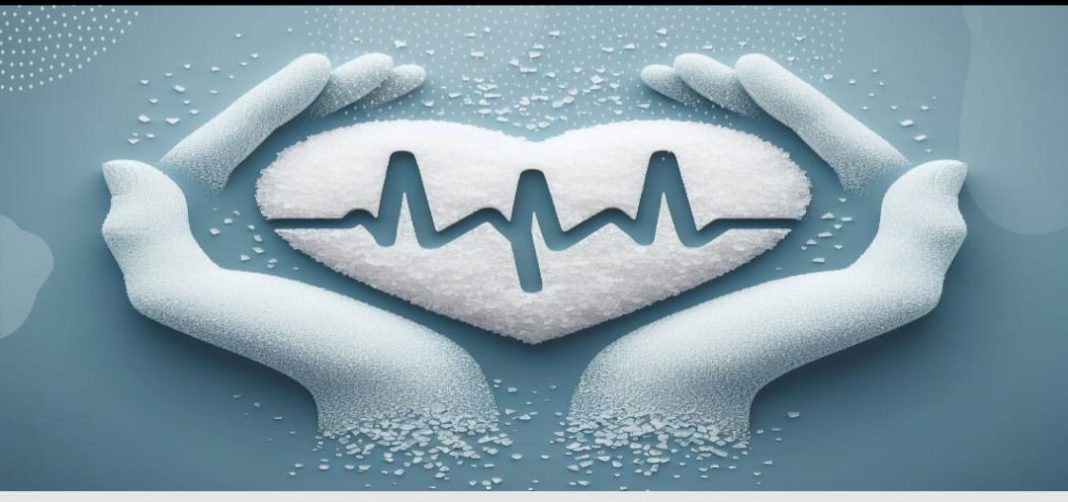By Joyce Remi-Babayeju
Experts from the Network for Health Equity and Development, NHED, have revealed that reducing salt intake to one teaspoon per day will save 2.5 million lives in Nigeria every year.
The NHED, Technical Advisor, Dr. Jerome Mafeni revealed this on Tuesday in Abuja at a Media Round Table Meeting on reduction of salt intake in commercial food production in Nigeria.
Mafeni, while taking journalists through a presentation on “Overview of Mandatory Salt reduction campaign and it’s role in improving public health”, warned on the need for key reduction of salt intake in foods and commercial foods.
Mafeni said, ” In Nigeria, the main salt intake is 10 gramme daily , twice the recommended maximum level of 5 gramme daily.”
According to the NHED, Technical Advisor, reducing salt ( sodium ) intake will significantly reduce blood pressures in adults, adding that salt reduction measures will generate an extra year of healthy life for a cost that falls below the average annual income or gross domestic product per person.
According to him, Cardiovascular diseases (CVDs) are the leading causes of death globally, emphasizing that an
estimated 17.9 million people died from CVDs in 2019 representing 32%
of all global deaths.
Furthermore, NHED reveals loop that the Campaign to reduce salt content in commercially produced foods in
Nigeria is aimed at safeguarding the health of Nigeria citizens.
Mafeni explained that NHED is set to
collaborate with Federal Ministry of Health to incorporate the
priorities for salt reduction into the existing National Policy on Food Safety
and Quality.
Also, to engage with the National Agency for Food and Drug Administration and Control,NAFDAC to a mandatory
regulation for salt target and to partner with Civil Societies Organizations, CSOs to sensitize and to lobby and support
government for timely action to establish mandatory food targets.
The health Non Profitable Organization stated that collaboration with the media is to create public awareness on the dangers of high salt intake and to sensitize policy makers to enact the necessary policies.
The NHED Country Director, Dr.Emmanuel Sokpo said that the Media Round Table campaign is aimed at reducing salt intake in Nigeria.
According to Sokpo, NHED is partnering with other stakeholders at all levels across the country and the media to give to give voice at the communities.
“This particular project is an advocacy project and a campaign
about reducing salt content in commercial processed foods.”
“What we intend to achieve at the end of the campaign is that the food policy for food quality and safety in Nigeria can guide that we are eating safely and also consuming things in right quantities and salt is one of those key things.”
Through this campaign we would create a way to enable us to consume things the right way and thereby reduce excessive salt consumption related diseases, like hypertension, cardiovascular diseases and renal disease as well.
The third point is creating awareness of the general public as well.as the consumers because all of us eat food and most of the food contains salt, Sokpo stated.
Meanwhile, the experts say, the impact of high salt intake on health includes , diseases like Hypertension and Cardiovascular Diseases, High blood Pressure, Stroke and Heart Disease and Kidney Diseases.
Other related diseases are Osteoporosis and Gastric Cancer.





